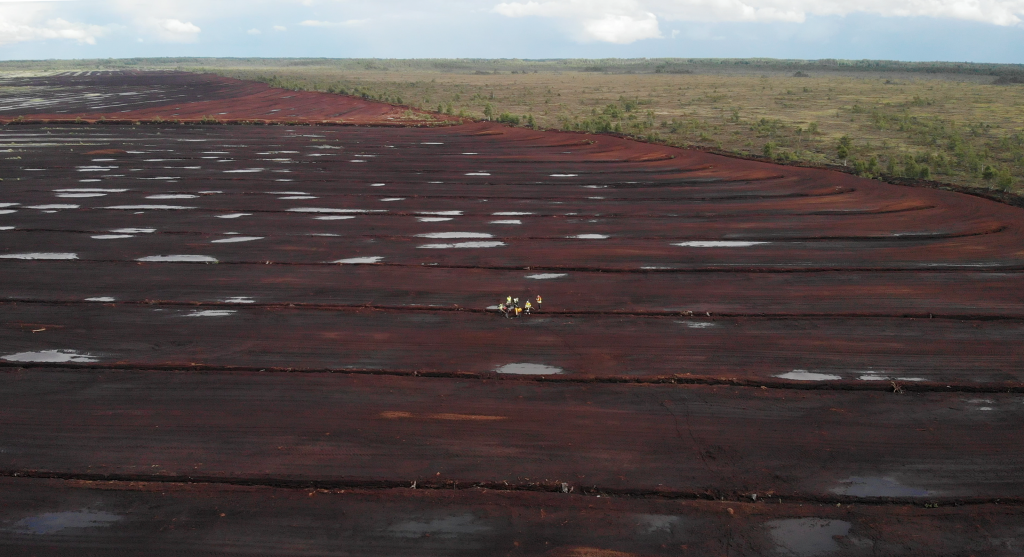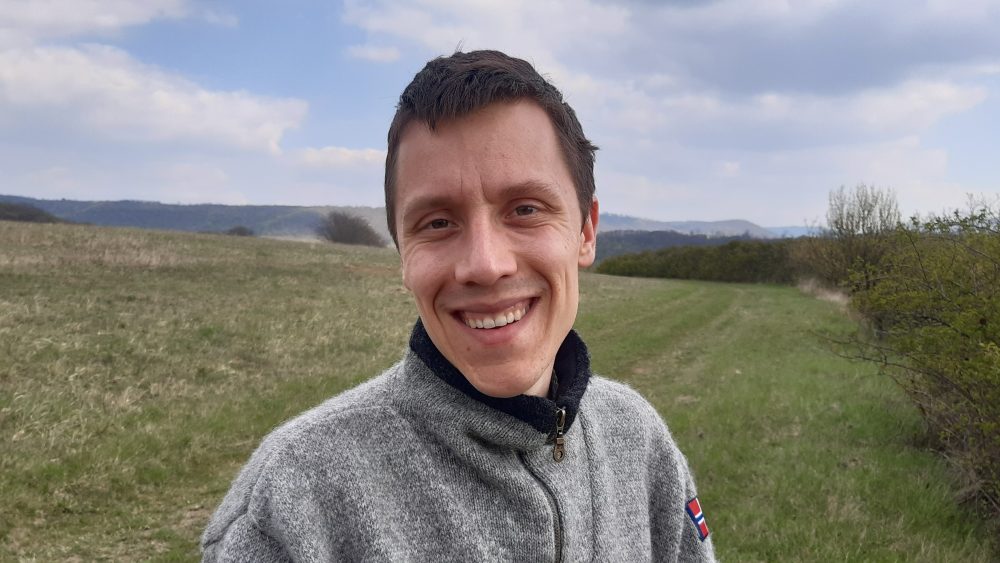Disclaimer: Researcher David Alcer’s views and opinions expressed in this text about civil disobedience are those of David Alcer as a private person. Lund University and the Alumni Network do not support or promote engagement in activities punishable by law.
Hello David Alcer, most known as the climate activist who ran onto the stage during the Eurovision winner Loreen’s live TV performance at the Swedish Melodifestivalen in 2023, with a banner that read “Restore the wetlands”. How are the wetlands doing these days, about a year and a half later, and why do you still think your message is important?
– It’s going so-so. As a result of Restore Wetlands persistence in raising public opinion on the issue, we now see it rising, moving higher up on the political agenda, and the governmental support for wetland restoration has recently been increased (in Sweden). However, harmful peat extraction on drained peatlands is still allowed, directly fueling the climate crisis. Peat is mainly used in gardening, agriculture, and as animal bedding, and peat extraction in Sweden is increasing today despite peat-free alternatives being available. Moreover, peat is still being burned to produce electricity and heat. Peat extraction contributes significantly to the climate crisis and should be banned – peat emits more greenhouse gases per unit of energy than coal, oil and gas.

There are so many factors affecting the climate, why do you think wetlands in Sweden are important?
– Over the past year, many reports have shown that we are much closer to critical climate tipping points than previously thought. For example, the stability of the Gulf Stream is at risk, and there is a significant risk that the Amazon rainforest is on its way to becoming into a barren savannah. Therefore, all emissions need to decrease rapidly, and banning peat extraction and restoring wetlands are among the most effective climate measures in Sweden, a country with large amounts of drained wetlands.
You work at Lund University, but your research area is in Solid State Physics, Nanoscience, and Semiconductor Technology, not directly in the specific area of “wetlands” – how come? Is there any common denominator here?
– My research focuses on the development of new types of solar cells. In the course of my work, however, I have come to realize that the bottleneck is not in climate and transition research, but in the fact that politics and the media are not responding adequately to the climate emergency and ecological crisis in which we find ourselves, and in some cases are even actively opposing the necessary transition.
Civil disobedience and the type of “coup” you carried out during the Swedish Melodifestivalen is debated in regards to a democracy (Debate in Lund has addressed the topic), what do you think about that?
– Civil disobedience is an important part of a healthy democracy as a means of raising issues of injustice. When majority rule does not respect the rights of a minority, civil disobedience can appeal to the moral compass of society to effect change. Historically, this could be the struggle for women’s voting rights, or today about the right to live on a habitable planet for young and future generations who are not represented in the parliament.
What was your punishment for storming the stage?
– The prosecutor dropped the charges, there was no trial. I believe I have not committed any crime, because we are in a climate emergency, where peaceful protest against the deadly course of politics is entirely justifiable and even necessary.
Read more
Climate research | Lund University
Climate change hits northern wetlands particularly hard in late summer (in Swedish)
Sweden’s first national citizens’ council on climate (in Swedish)
(Explainer video available in English)
Five tips for politicians to succeed with their climate policies (in Swedish)
Opportunities and obstacles for carbon sequestration in agricultural soils (in Swedish)
“We are further from the goals than before” (in Swedish)

